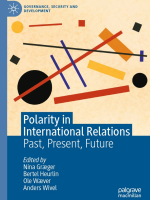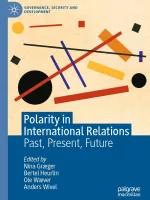Between Polarity and Foreign Policy
External freedom of manoeuvre (action space) is a meaningful concept, although it is difficult to ‘measure’ – which is often the case with crucial concepts. Scandinavian countries testing the limits of their freedom of manoeuvre will be analysed, learning about it the ‘hard way’ by being subject to great power disciplining. Subsequently, the contours of a theory are sketched, in which freedom of manoeuvre is the missing link between (locational) power polarity and states’ foreign-policy profile. The theory involves a medium ‘explanatory leap’. A distance from systemic polarity to foreign policies is mostly too long for a systematic pattern to occur. By contrast, constructivist approaches often entail too short a leap, making them almost truistic. A theory of freedom of manoeuvre would be useful for prescriptive purposes. Rather than merely describing and interpreting their discourse, it can offer policy advice to decision-makers. This will seldom be about the positive line of action to be chosen in any given situation, but rather about the outer limits of what they can do. On the other hand, they should not be docile and desist from occasionally challenging the limits of freedom.
DIIS Experts



